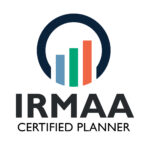Should you or should you not appeal IRMAA is all based on your own personal situation. For many who are new to Medicare the answer will be a resounding yes you should, but for those already enrolled into Medicare that answer may be a very hard no.
According to Social Security there are few reasons to appeal an IRMAA decision which are:
- You believe the wrong tax-return was used. The IRS provided a tax return from 3 years prior instead of using the latest
- You can produce a more up to date tax return that may have been amended or corrected.
- You have experienced a qualifying life changing event, which are:
- Tax status change
- Married, Divorced, Widowed or Annulment
- Work stoppage or reduction
- You retired from your employment
- Loss of income producing property
- Any real or personal property that generates income which lost due to circumstances out of your control.
- Reduction or Loss of Pension Income
- Receiving a pension from an employer that is going to end
- Employer Settlement Payment
- Receiving a pension or payout that will abruptly stop due to employer no longer being able to fund it.
So, what should you do, appeal or not appeal?
For those who are new to Medicare:
The answer is of course you should appeal.
Remember the process and keep in mind the reasons to appeal. The SSA is asking the IRS for your MAGI from 2 years prior, which is when you were working.
The SSA has already given you a built-in reason to appeal which is “Work Stoppage or Reduction”. All you need to do from this point to get out of IRMAA is fill out an SSA-44 Form from the SSA, which can be found here.
For those who are not new to Medicare and have received an IRMAA notification:
The hard answer is that appealing may lead to much bigger problems for you later.
Instead of remembering the process, at this point you need to remember how someone can reach IRMAA in the first place.
IRMAA is based on your MAGI that is determined from any income that you generate from Wages, Taxable Social Security benefits, Capital Gains, Pension and Rental Income, Dividends AND DISTRIBUTIONS FROM ANY TAX-DEFERRED INVESTMENTS LIKE A TRADITIONAL 401(k).
The SSA is asking the IRS for your tax information from 2 years prior which is most likely when you started to take your required minimum distribution (RMD) from that Traditional 401(k).
Not only does that RMD count as income towards IRMAA, but it is also used to ensure that 85% of your Social Security benefit becomes taxable.
That RMD from your Traditional 401(k), unfortunately, creates income for IRMAA on its own, but it also aids and abets in making your Social Security benefit taxable, which is then used to create even more income that counts towards IRMAA.
The icing on the cake of your Traditional 401(k): it still gets taxed as ordinary income too…after ensuring you pay more Medicare and receive less in Social Security benefits.
So, without a qualifying life event when it comes to appealing IRMAA and all you are doing is challenging the MAGI which is provided from the IRS to avoid IRMAA it is strongly recommended that you do NOT file an appeal…ever!
At this point any appeal you make is telling a federal government agency, the Social Security Administration, that your tax information, which is provided by the IRS, is in fact wrong.
This means you are stating to a government agency that the tax information you provided to the IRS is not accurate and that the IRS is wrong.
With 87,000 newly hired IRS agents this may not be the wisest decision to make, but if you are going to file an appeal there are couple of way to do that.

